Here’s a really thoughtful short crime story that I think my Catholic friends will especially enjoy (it’s good and it’s pretty hard to find a good audio edition). Though some have classified it as humorous it has plenty of depth (they must be thinking it is a black comedy). It follows in the tradition of The Boy Who Cried Wolf and may remind you of later works like Joseph Heller’s Catch-22. In the paperbook translation where I first read it, the title was A Piece Of Yarn. This is not a literal translation of the French (“La Ficelle“) but is actually about ten times better than A Piece Of String (for reasons which are clearer after reading the entire tale). And as an added bonus there’s probably not a better American accented narrator for this story than Stefan Rudnicki. Enjoy!
A Piece Of String
By Guy de Maupassant
Along all the roads around Goderville the peasants and their wives were coming toward the burgh because it was market day. The men were proceeding with slow steps, the whole body bent forward at each movement of their long twisted legs; deformed by their hard work, by the weight on the plow which, at the same time, raised the left shoulder and swerved the figure, by the reaping of the wheat which made the knees spread to make a firm “purchase,” by all the slow and painful labors of the country. Their blouses, blue, “stiff-starched,” shining as if varnished, ornamented with a little design in white at the neck and wrists, puffed about their bony bodies, seemed like balloons ready to carry them off. From each of them two feet protruded.
Some led a cow or a calf by a cord, and their wives, walking behind the animal, whipped its haunches with a leafy branch to hasten its progress. They carried large baskets on their arms from which, in some cases, chickens and, in others, ducks thrust out their heads. And they walked with a quicker, livelier step than their husbands. Their spare straight figures were wrapped in a scanty little shawl pinned over their flat bosoms, and their heads were enveloped in a white cloth glued to the hair and surmounted by a cap.
Then a wagon passed at the jerky trot of a nag, shaking strangely, two men seated side by side and a woman in the bottom of the vehicle, the latter holding onto the sides to lessen the hard jolts.
In the public square of Goderville there was a crowd, a throng of human beings and animals mixed together. The horns of the cattle, the tall hats, with long nap, of the rich peasant and the headgear of the peasant women rose above the surface of the assembly. And the clamorous, shrill, screaming voices made a continuous and savage din which sometimes was dominated by the robust lungs of some countryman’s laugh or the long lowing of a cow tied to the wall of a house.
All that smacked of the stable, the dairy and the dirt heap, hay and sweat, giving forth that unpleasant odor, human and animal, peculiar to the people of the field.
Maître Hauchecome of Breaute had just arrived at Goderville, and he was directing his steps toward the public square when he perceived upon the ground a little piece of string. Maître Hauchecome, economical like a true Norman, thought that everything useful ought to be picked up, and he bent painfully, for he suffered from rheumatism. He took the bit of thin cord from the ground and began to roll it carefully when he noticed Maître Malandain, the harness maker, on the threshold of his door, looking at him. They had heretofore had business together on the subject of a halter, and they were on bad terms, both being good haters. Maître Hauchecome was seized with a sort of shame to be seen thus by his enemy, picking a bit of a head. two arms and string out of the dirt. He concealed his “find” quickly under his blouse, then in his trousers’ pocket; then he pretended to be still looking on the ground for something which he did not find, and he went toward the market, his head forward, bent double by his pains.
He was soon lost in the noisy and slowly moving crowd which was busy with interminable bargainings. The peasants milked, went and came, perplexed, always in fear of being cheated, not daring to decide, watching the vender’s eye, ever trying to find the trick in the man and the flaw in the beast.
The women, having placed their great baskets at their feet, had taken out the poultry which lay upon the ground, tied together by the feet, with terrified eyes and scarlet crests.
They heard offers, stated their prices with a dry air and impassive face, or perhaps, suddenly deciding on some proposed reduction, shouted to the customer who was slowly going away: “All right, Maître Authirne, I’ll give it to you for that.”
Then lime by lime the square was deserted, and the Angelus ringing at noon, those who had stayed too long scattered to their shops.
At Jourdain’s the great room was full of people eating, as the big court was full of vehicles of all kinds, carts, gigs, wagons, dumpcarts, yellow with dirt, mended and patched, raising their shafts to the sky like two arms or perhaps with their shafts in the ground and their backs in the air.
Just opposite the diners seated at the table the immense fireplace, filled with bright flames, cast a lively heat on the backs of the row on the right. Three spits were turning on which were chickens, pigeons and legs of mutton, and an appetizing odor of roast beef and gravy dripping over the nicely browned skin rose from the hearth, increased the jovialness and made everybody’s mouth water.
All the aristocracy of the plow ate there at Maître Jourdain’s, tavern keeper and horse dealer, a rascal who had money.
The dishes were passed and emptied, as were the jugs of yellow cider. Everyone told his affairs, his purchases and sales. They discussed the crops. The weather was favorable for the green things but not for the wheat.
Suddenly the drum beat in the court before the house. Everybody rose, except a few indifferent persons, and ran to the door or to the windows, their mouths still full and napkins in their hands.
After the public crier had ceased his drumbeating he called out in a jerky voice, speaking his phrases irregularly:
“It is hereby made known to the inhabitants of Goderville, and in general to all persons present at the market, that there was lost this morning on the road to Benzeville, between nine and ten o’clock, a black leather pocketbook containing five hundred francs and some business papers. The finder is requested to return same with all haste to the mayor’s office or to Maître Fortune Houlbreque of Manneville; there will be twenty francs reward.”
Then the man went away. The heavy roll of the drum and the crier’s voice were again heard at a distance.
Then they began to talk of this event, discussing the chances that Maître Houlbreque had of finding or not finding his pocketbook.
And the meal concluded. They were finishing their coffee when a chief of the gendarmes appeared upon the threshold.
He inquired:
“Is Maître Hauchecome of Breaute here?”
Maître Hauchecome, seated at the other end of the table, replied:
“Here I am.”
And the officer resumed:
“Maître Hauchecome, will you have the goodness to accompany me to the mayor’s office? The mayor would like to talk to you.”
The peasant, surprised and disturbed, swallowed at a draught his tiny glass of brandy, rose and, even more bent than in the morning, for the first steps after each rest were specially difficult, set out, repeating: “Here I am, here I am.”
The mayor was awaiting him, seated on an armchair. He was the notary of the vicinity, a stout, serious man with pompous phrases.
“Maître Hauchecome,” said he, “you were seen this morning to pick up, on the road to Benzeville, the pocketbook lost by Maître Houlbreque of Manneville.”
The countryman, astounded, looked at the mayor, already terrified by this suspicion resting on him without his knowing why.
“Me? Me? Me pick up the pocketbook?”
“Yes, you yourself.”
“Word of honor, I never heard of it.”
“But you were seen.”
“I was seen, me? Who says he saw me?”
“Monsieur Malandain, the harness maker.”
The old man remembered, understood and flushed with anger.
“Ah, he saw me, the clodhopper, he saw me pick up this string here, M’sieu the Mayor.” And rummaging in his pocket, he drew out the little piece of string.
But the mayor, incredulous, shook his head.
“You will not make me believe, Maître Hauchecome, that Monsieur Malandain, who is a man worthy of credence, mistook this cord for a pocketbook.”
The peasant, furious, lifted his hand, spat at one side to attest his honor, repeating:
“It is nevertheless the truth of the good God, the sacred truth, M’sieu the Mayor. I repeat it on my soul and my salvation.”
The mayor resumed:
“After picking up the object you stood like a stilt, looking a long while in the mud to see if any piece of money had fallen out.”
The good old man choked with indignation and fear.
“How anyone can tell—how anyone can tell—such lies to take away an honest man’s reputation! How can anyone—-”
There was no use in his protesting; nobody believed him. He was con.
fronted with Monsieur Malandain, who repeated and maintained his affirmation. They abused each other for an hour. At his own request Maître Hauchecome was searched; nothing was found on him.
Finally the mayor, very much perplexed, discharged him with the warning that he would consult the public prosecutor and ask for further orders.
The news had spread. As he left the mayor’s office the old man was sun rounded and questioned with a serious or bantering curiosity in which there was no indignation. He began to tell the story of the string. No one believed him. They laughed at him.
He went along, stopping his friends, beginning endlessly his statement and his protestations, showing his pockets turned inside out to prove that he had nothing.
They said:
“Old rascal, get out!”
And he grew angry, becoming exasperated, hot and distressed at not
being believed, not knowing what to do and always repeating himself.
Night came. He must depart. He started on his way with three neighbors to whom he pointed out the place where he had picked up the bit of string, and all along the road he spoke of his adventure.
In the evening he took a turn in the village of Breaute in order to tell it to everybody. He only met with incredulity.
It made him ill at night.
The next day about one o’clock in the afternoon Marius Paumelle, a hired man in the employ of Maître Breton, husbandman at Ymanville, returned the pocketbook and its contents to Maître Houlbreque of Manneville.
This man claimed to have found the object in the road, but not knowing how to read, he had carried it to the house and given it to his employer.
The news spread through the neighborhood. Maître Hauchecome was informed of it. He immediately went the circuit and began to recount his story completed by the happy climax. He was in triumph.
“What grieved me so much was not the thing itself as the lying. There is nothing so shameful as to be placed under a cloud on account of a lie.”
He talked of his adventure all day long; he told it on the highway to people who were passing by, in the wineshop to people who were drinking there and to persons coming out of church the following Sunday. He stopped strangers to tell them about it. He was calm now, and yet something disturbed him without his knowing exactly what it was. People had the air of joking while they listened. They did not seem convinced. He seemed to feel that remarks were being made behind his back.
On Tuesday of the next week he went to the market at Goderville, urged solely by the necessity he felt of discussing the case.
Malandain, standing at his door, began to laugh on seeing him pass. Why?
He approached a farmer from Crequetot who did not let him finish and, giving him a thump in the stomach, said to his face:
“You big rascal.”
Then he turned his back on him.
Maître Hauchecome was confused; why was he called a big rascal?
When he was seated at the table in Jourdain’s tavern he commenced to explain “the affair.”
A horse dealer from Monvilliers called to him:
“Come, come, old sharper, that’s an old trick; I know all about your piece of string!”
Hauchecome stammered:
“But since the pocketbook was found.”
But the other man replied:
“Shut up, papa, there is one that finds and there is one that reports. At any rate you are mixed with it.”
The peasant stood choking. He understood. They accused him of having had the pocketbook returned by a confederate, by an accomplice.
He tried to protest. All the table began to laugh.
He could not finish his dinner and went away in the midst of jeers.
He went home ashamed and indignant, choking with anger and confusion, the more dejected that he was capable, with his Norman cunning, of doing what they had accused him of and ever boasting of it as of a good turn. His innocence to him, in a confused way, was impossible to prove, as his sharpness was known. And he was stricken to the heart by the injustice of the suspicion.
Then he began to recount the adventures again, prolonging his history every day, adding each time new reasons, more energetic protestations, more solemn oaths which he imagined and prepared in his hours of solitude, his whole mind given up to the story of the string. He was believed so much the less as his defense was more complicated and his arguing more subtile.
“Those are lying excuses,” they said behind his back.
He felt it, consumed his heart over it and wore himself out with useless efforts. He wasted away before their very eyes.
The wags now made him tell about the string to amuse them, as they make a soldier who has been on a campaign tell about his battles. His mind, touched to the depth, began to weaken.
Toward the end of December he took to his bed.
He died in the first days of January, and in the delirium of his death struggles he kept claiming his innocence, reiterating:
“A piece of string, a piece of string—look—here it is, M’sieu the Mayor.”

 Comedian Norm MacDonald is the most recent guest on Tom Green’s new podcast (#7). Near the end of the show (at the 1 hour 19 minute mark) he recites Shel Silverstein‘s poem The Devil And Billy Markham.
Comedian Norm MacDonald is the most recent guest on Tom Green’s new podcast (#7). Near the end of the show (at the 1 hour 19 minute mark) he recites Shel Silverstein‘s poem The Devil And Billy Markham.
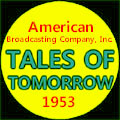 Tales Of Tomorrow – Watchbird
Tales Of Tomorrow – Watchbird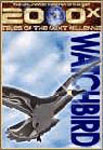 2000X – The Watchbird
2000X – The Watchbird 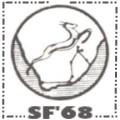

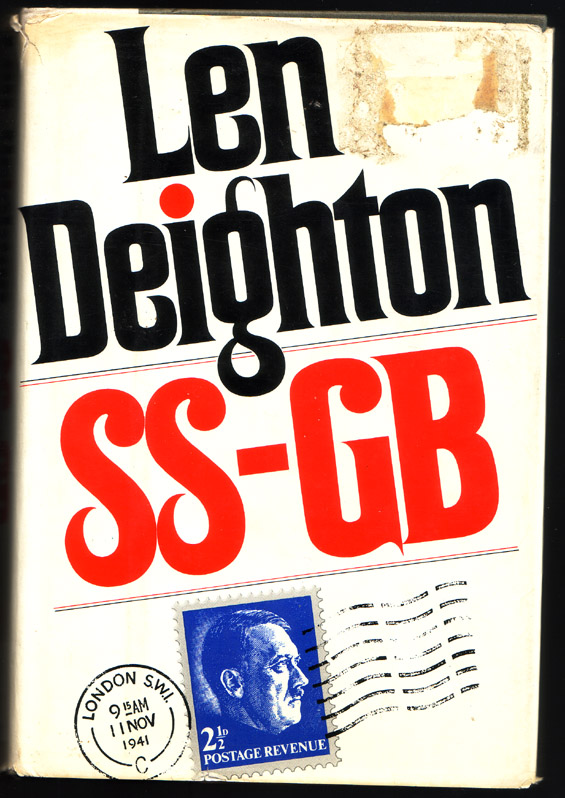
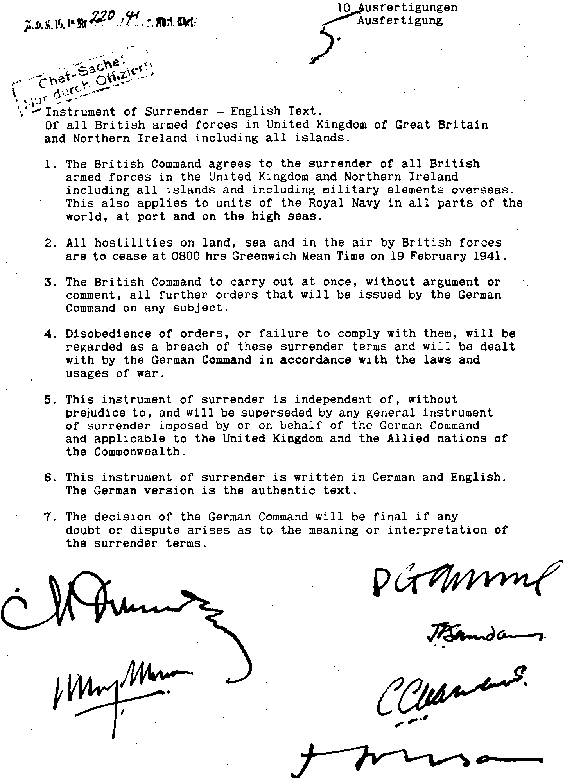

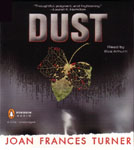

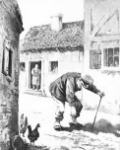 A Piece Of String (aka A Piece Of Yarn)
A Piece Of String (aka A Piece Of Yarn)